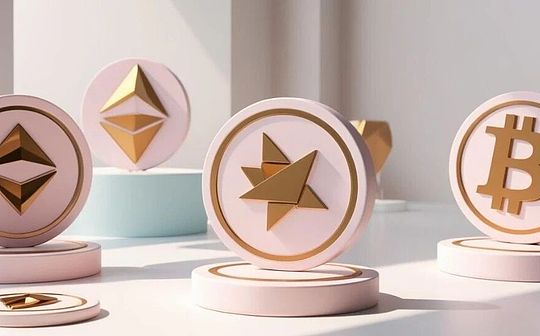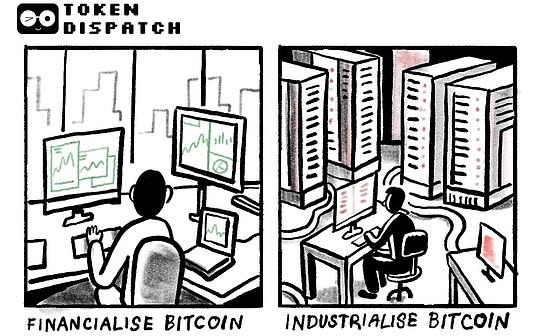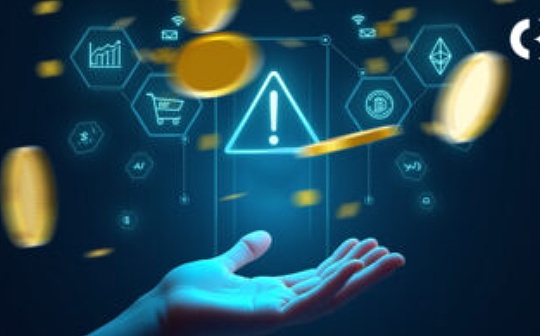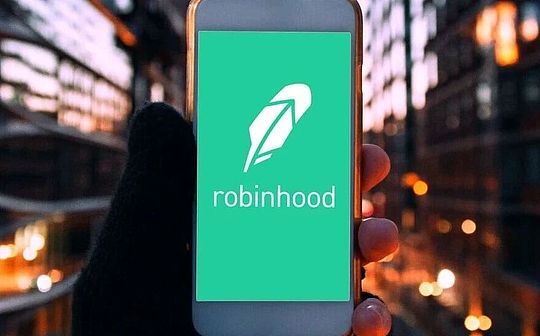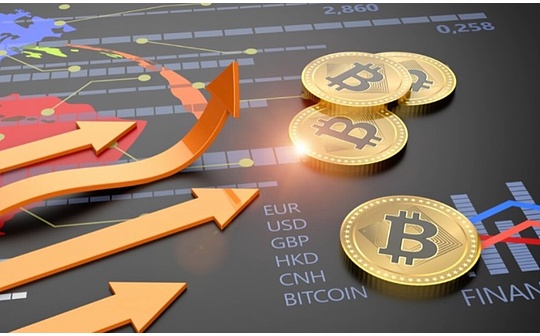
Author: Monty Munford, Source: Cointelegraph Magazine, Compiled by: Shaw Bitchain Vision
Cryptocurrencies should represent freedom—a network without permission, an untampered ownership, an asset that no government or intermediary can revoke at will.At least, this is Satoshi Nakamoto’s dream—but it is undeniable that this vision has gradually faded with the impact of reality.
Stock tokens emerge as all other idealisms are declining, and they have put glamorous digital cloak on traditional stocks such as Tesla, Apple and Amazon.Suddenly, the cryptocurrency field finds itself trapped in the regulatory shackles of Wall Street.
Stock tokens under the current structure, such as Kraken, Robinhood and future Coinbase tokens, have a decentralization level similar to Goldman Sachs’ board meetings.They are digital and tokenized, but users must obtain them through KYC; they can only be transferred between whitelisted addresses, and the issuer can freeze or revoke them at will.In short, they are not real cryptocurrencies at all.They are just securities dressed in digital cloaks, playing drag games at the decentralized finance (DeFi) masquerade.
Then the question is: How to get rid of the embarrassing dilemma of centralized tokens and move towards a future where to own tokenized Tesla stocks is as free as holding ETH or BTC?Perhaps the harder question is: Is such a future really possible?
What is tokenization
When people talk about “stock tokens”, they often confuse completely different financial instruments: tokenized listed stocks, tokenized government bonds, and even tokenized private company shares.In fact, theyAll belong to the category of securities tokens: these financial tools operate on blockchain technology, but are still subject to the securities law.
Ross Shem, co-founder and COO of tokenization company Stobox, spoke mercilessly.
“It is naive and dangerous to try to view to tokenized securities as native crypto assets. These tokens are subject to securities laws, require KYC authentication and must comply with investor protection standards. The only thing they have in common with cryptocurrencies is the underlying technology, not philosophy, regulation and culture.”
For Shem, decentralization is wrong.“From an encryption perspective, true decentralization is incompatible with regulated financial tools. You can use zero-knowledge proofs or smart contracts to achieve automation and privacy protection, but you can’t get rid of the rules. Securities tokens won’t become more ‘crypto’. Instead, traditional finance will become more ‘blockchain’.”
Are tokenized stocks just digital loan notes?
This difference is important becauseToday’s stock tokens are essentially loan notes.Centralized issuers must comply with securities laws, which means embedding restrictions such as KYC, whitelist-only transfers and revocable contracts.It’s like a “decentralized farce” dressed in the cloak of innovation.
“Packing stocks into tokens without decentralization will only recreate old systems with more glamorous tracks,” said Darren Franceschini, co-founder and CEO of Zekret Labs.
He added: “To make tokenized stocks truly a crypto asset, decentralized custody and compliance checks are required at the protocol level, rather than blindly trusting a single issuer. Only in this way can tokenized stocks inherit the core strengths of blockchain: transparency and censorship resistance.”
The true decentralization of AI, DeFi and stock tokens
So, what will the truly decentralized Tesla token look like?It will be transferred without permission, is unchangeable once entered into the wallet, can seamlessly access DeFi protocols and resist scrutiny from regulators or issuers.
In other words, it will work like Bitcoin: ownership is absolutely, control is completely in the hands of the holder.
“Just like the nature of real-world assets like stocks (RWAs), the question here shouldn’t be how to achieve decentralization, but rather whether the asset can be used, combined and integrated without restrictions in a decentralized ecosystem. If an asset can be freely transferred between wallets and accessed to DeFi without anyone’s permission, it’s a crypto asset. If it can’t be done, it’s just a digital packaging.”
Although existing systems can do this, it is very difficult, and Gaia AI co-founder Shashank Sripada believes that artificial intelligence (AI) is likely to be the key to solving this problem.
“The real opportunity is that the decentralized AI Agent itself acts as a compliance layer, automating KYC, monitoring fund flows and displaying alerts transparently on-chain,” Sripada said. “This shifts regulation from a political bottleneck to a protocol function. It’s self-regulation through code rather than a statute, closer to the culture on which cryptocurrencies rely on.”
Stock tokenization may be in the stage of decentralized development
Of course, decentralization is not a binary opposition,Today’s stock tokens are firmly at the highly centralized end.But over time, issuers may relax restrictions, regulators may pilot sandboxes, and even hybrid options may appear.
The biggest obstacle is the legal level.Stocks are one of the most regulated financial instruments in the world, and most jurisdictions require centralized issuance.Nowadays, any attempt to issue Tesla tokens that require no license will be still in the womb under regulatory scrutiny.
Chaudhry added: “Unless the stocks are issued directly on-chain by listed companies and holders have rights such as direct dividends, they will never be able to truly achieve decentralization because the intermediate issuer controls the underlying assets.”
This is the paradox:Where the value of cryptocurrencies is – without permission, tamper-proof, anti-censorship – is the characteristic that regulators do not allow stocks to have.Before the legal adjustment, decentralized stock tokens were technically feasible, but legally prohibited.
Having said that, things are changing rapidly.Earlier this month, Galaxy Digital became the first Nasdaq listed company to directly tokenize stocks on the Solana blockchain.Unlike derivatives or packaging products, each token has all legal and economic rights to shareholders.
Nasdaq has filed a rule change application with the U.S. Securities and Exchange Commission (SEC) this week allowing it to provide tokenized stocks with the same legal and economic rights as ordinary stocks.
Synthetic stock tokens and liquidity issues
Cryptocurrencies have never been known for respecting legal boundaries.DeFi protocols such as Synthetix and Mirror have not directly tokenized Tesla’s stock in the past, but have tried to mint synthetic assets linked to Tesla’s stock price.These synthetic assets do not grant ownership or dividends, but do provide investment exposure – and no license required.
However, even the synthetic market faces obstacles.Liquidity is one of them.The sTSLA token has completed a total of 798 transactions before it was phased out in 2021.
Aava partner James Bernard explains why tokenized commodities and tokenized stocks often lag behind other RWA categories.“Unlike real estate deeds or Treasuries, commodities require reliable custody, storage and verification, which adds complexity and cost. Another major challenge is liquidity,” he said.“The traditional commodity markets benefit from deep futures and derivatives ecosystems, while the tokenized version lacks comparable market depth. Commodities will continue to lag behind other asset classes in tokenized adoption before the platform addresses custody, compliance and liquidity barriers and attracts retail, institutional and industry participants.”
The same applies to stocks; without a deep secondary market, tokenization may still be just a niche experiment.
Liquidity is further affected as multiple issuers launch competing Tesla tokens and allocate funds to smaller and smaller pools of funds.
Legal issues of stock tokenization
For lawyers, this debate reveals the fundamental contradiction in the meaning of ownership.”The problem with stock tokenization is that its assets – equity is centralized in nature, and there are usually specific regulations on who can own a company. Even in the UAE model, where tokens are ‘that’ equity, regulators require identification of owners, which actually brings a centralized factor.”
He believes that decentralization is not the ownership itself, but specific rights, such as dividend claims.However, this raises a deeper question: What exactly does the holder “acquire” through tokenized equity?Just owning stock tokens does not mean you own the company, nor does it mean you have the inherent right to receive dividends.
Timo Lehes, co-founder of the tokenized RWA trading platform Swarm, also agrees: “Not all tokenizations are the same. Investors should always understand how assets are put on the chain and what rights they have. For example, what happens to token holders if the issuing company goes bankrupt? Therefore, while the stock tokens of centralized issuers will never be “purely decentralized”, their design can have the advantages of both: both the guarantees of a regulated market and the efficiency and freedom of DeFi.”
Will Wall Street be more cryptocurrency be more Wall Street
The collision between Wall Street and Web3 is inevitable.Tokenization is not a flash in the pan, but the next chapter of the capital market.But today’s stock tokens are only transitional rather than transformative—more like an upgraded version of broker IOUs than native crypto assets.
When the three factors go hand in hand, a breakthrough will come:The regulatory framework recognizes blockchain as a native settlement layer; protects investors without hindering the mix of compositional structures; and advances in encryption technology that make compliance and privacy compatible.Only then will stock tokens cross from digital packaging to truly decentralized assets.

